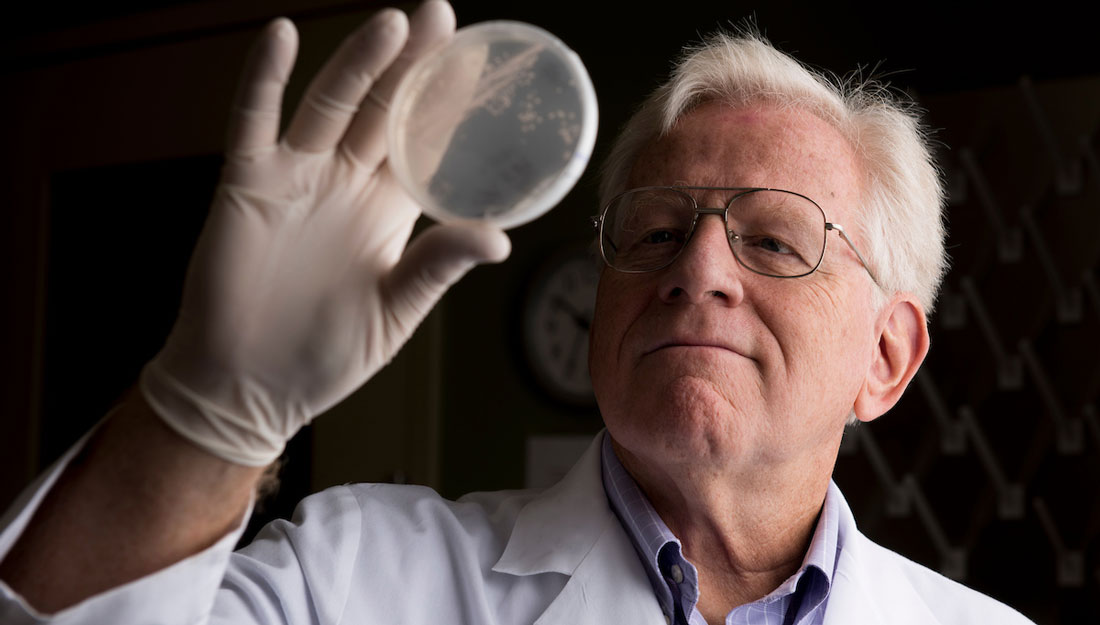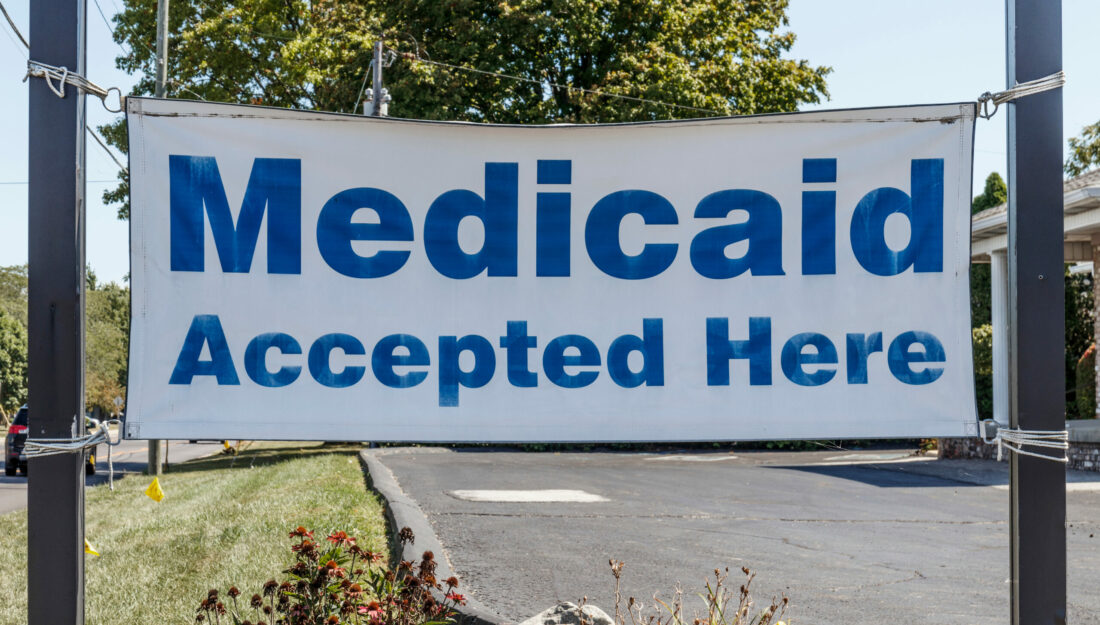- Lindsey Hendrix
- COVID-19, Medicine, Research, Show on VR homepage
Texas A&M testing COVID-19 vaccine candidates for iBio, Inc.
Scientists expect to see preliminary results from pre-clinical trials before Oct. 1

Dr. James Samuel holds up a petri dish to take a close look at pathogens. Texas A&M University Health Science Center
A team of scientists at Texas A&M University is working on two COVID-19 vaccine candidates that could be mass produced quickly in modified tobacco plants.
The team is led by James Samuel, PhD, a regents’ professor and the head of the Department of Microbial Pathogenesis and Immunology at the Texas A&M University College of Medicine. Samuel discusses the experiments with John Sharp, chancellor of The Texas A&M University System, in the final episode of “COVID-19: The Texas A&M University System Responds.”
“This is an important collaboration,” Sharp said. “It’s an example of how our scientists, engineers and other experts collaborate with the private sector on the world’s most pressing problems.”
Samuel is leading the group at his lab at the Texas A&M University Health Science Center (Texas A&M Health). The team is testing the vaccine candidates for the international biotechnology company iBio Inc., which operates a manufacturing facility in nearby Bryan, Texas. The scientists expect to see preliminary results before Oct. 1 from pre-clinical trials in animal models.
iBio produces its two COVID-19 vaccine candidates in modified tobacco leaves using a plant-based growing system it calls “FastPharming.” The company says its system can produce vaccine doses at mass commercial scale more quickly than other methods.
Samuels said it is important for scientists across the globe to develop scores of different COVID-19 vaccine candidates.
The SARS-CoV-2 virus is unusually tough on the immune systems of older people and people with chronic health problems such as diabetes, hypertension and lung disease. Samuel predicted that early vaccines will be useful for otherwise healthy people, but it probably will be more difficult to find vaccines that help more vulnerable patients.
“The challenge is a lot more complicated than a single vaccine,” he said. “The scale of the problem alone is unprecedented. This will not be a horse race with a single winner.”
The Texas A&M University System has worked with iBio Inc. on biotech manufacturing since 2016 through its Center for Innovation in Advanced Development and Manufacturing, (CIADM), which is part of the Public Health Preparedness and Response Initiative at Texas A&M Health.
iBio Inc. is based in New York City. It has a 130,000 square-foot production facility near the Texas A&M campus. The building was constructed in 2010 with funding from the U.S. Defense Advanced Research Projects Agency (DARPA). It was part of the “Blue Angel” initiative to help with rapid response to future outbreaks following the 2009 H1N1 flu pandemic, which infected 61 million people and caused an estimated 12,469 deaths in the United States.
Adapted from a press release by Texas A&M University System Marketing & Communications
Media contact: media@tamu.edu


